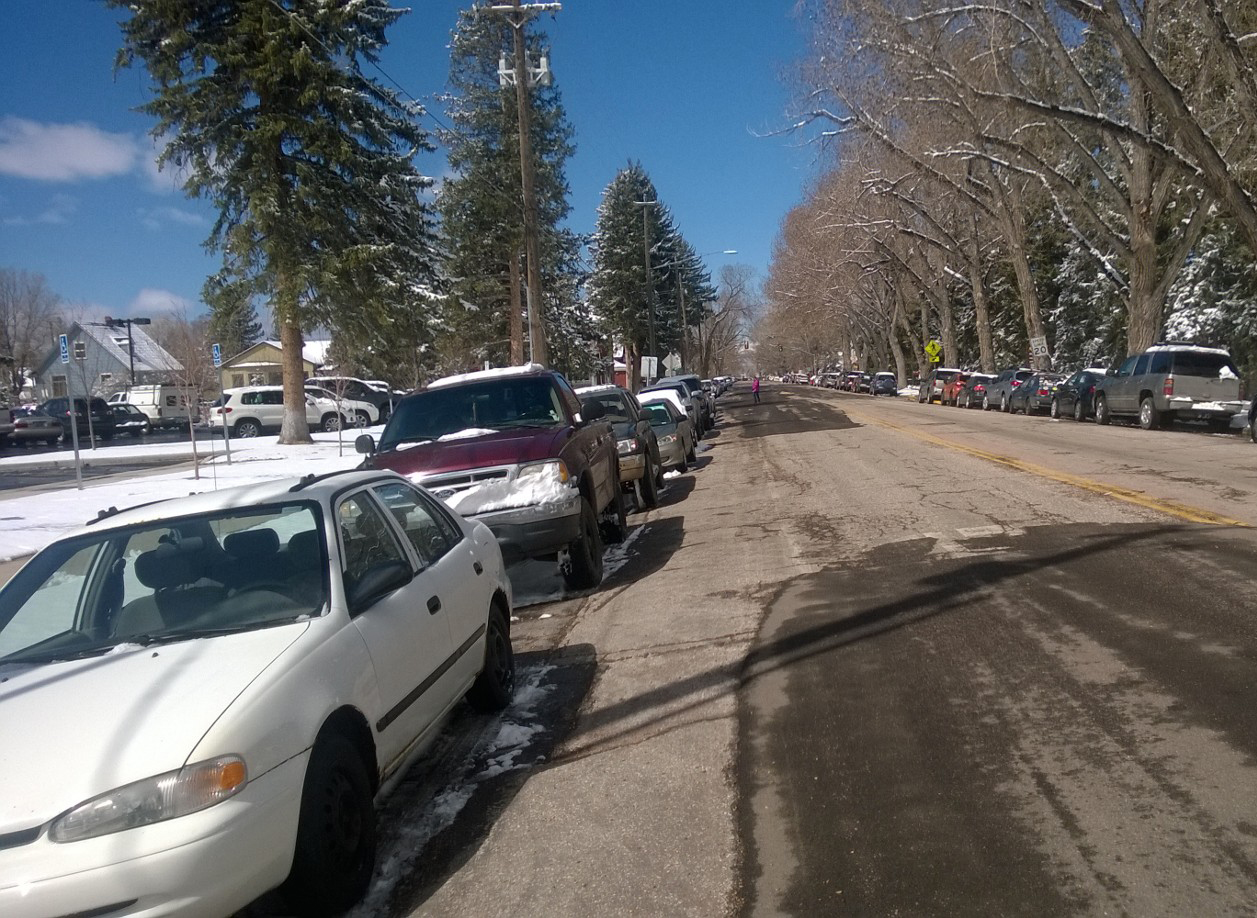The city is looking toward reworking the parking permit system found on the streets bordering campus and in the surrounding neighborhoods, with the earliest possible changes implemented next summer.
The system as it stands now will remain in place for the academic year.
City councilors were unable to achieve a consensus on the general direction a parking permit reform should take.
Councilor Joe Shumway said he supported offering individual permit parking spaces if the individuals pay for them.
The system, as it stands, requires neighbors on a block to agree they want city permit parking in front of their houses and request it together. Shumway said individual spaces would be requested rarely enough to be feasible.
“For those people that cannot get an agreement there, if we put up another 50 signs, it’s not a forest of signs,” he said. “There are people who won’t pay for the sign, others who will not because they’re going to walk to school anyway.”
But other members of the council wanted to reverse or nix the permit parking system.
Klaus Hanson said he liked an idea shared by councilor Vitale last time this issue was discussed.
“If you live in that area, you get a free permit; if you want to park in this area, pay for it,” Hanson said. “I find it offensive to charge the people who live around the university to pay for the privilege of parking in front of their house.”
Councilor Paul Weaver said it was a “philosophical issue” and that he “fundamentally disagreed” with what he saw as the privatization of public streets.
Councilor Andrea Summerville said she agreed.
“They are publically owned streets,” Summerville said. “They belong to the person who lives in West Laramie, Alta Vista, as much as they belong to the person who lives on Seventh, Eighth or Ninth Street.”
With such a split among councilor opinions, the council decided to revisit the issue in November. Mayor Dave Paulekas said members unhappy with the present system should research some out-of-the-box, alternative solutions and present them when the issue was discussed next.
“If we can’t go into this with some flexibility, we’re in trouble,” he said.



